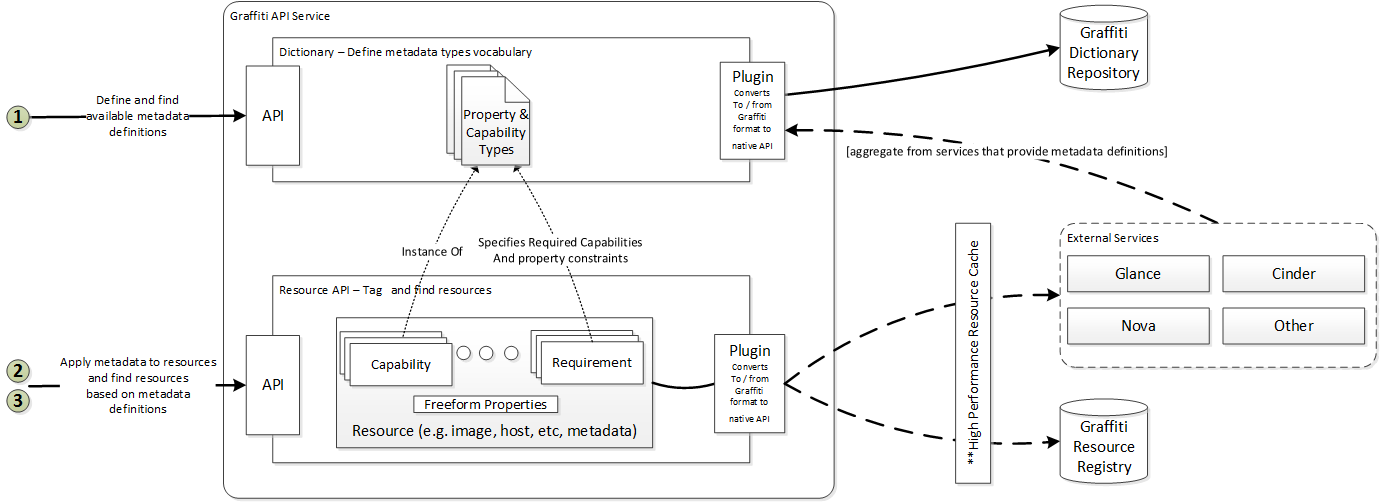Difference between revisions of "Graffiti/Directory"
< Graffiti
Travis Tripp (talk | contribs) (Created page with " == Graffiti Directory == A common API to "tag" and search across existing and new services for cloud content based on the metadata vocabulary, ad-hoc properties, names, and...") |
Travis Tripp (talk | contribs) |
||
| Line 3: | Line 3: | ||
A common API to "tag" and search across existing and new services for cloud content based on the metadata vocabulary, ad-hoc properties, names, and descriptions. | A common API to "tag" and search across existing and new services for cloud content based on the metadata vocabulary, ad-hoc properties, names, and descriptions. | ||
| + | |||
| + | See [[Graffiti/Architecture]] | ||
=== Expanded Contextual Overlay === | === Expanded Contextual Overlay === | ||
| Line 19: | Line 21: | ||
* Freeform properties (those not associated with a known namespace in the dictionary) | * Freeform properties (those not associated with a known namespace in the dictionary) | ||
* Flat properties (those associated with a namespace, but not a capability type in the namespace) | * Flat properties (those associated with a namespace, but not a capability type in the namespace) | ||
| − | * Capabilities (instances of capability types) | + | * Capabilities (instances of [[Graffiti/Dictionary#Capability_Types|capability types]]) |
* Requirements (references to required capability types as well as the constraints) | * Requirements (references to required capability types as well as the constraints) | ||
For example, a resource may be of type ''volume''. It may come from a specific Cinder endpoint registered in Keystone. It may have the capability of a certain kind of OS and may also have MySQL on it. | For example, a resource may be of type ''volume''. It may come from a specific Cinder endpoint registered in Keystone. It may have the capability of a certain kind of OS and may also have MySQL on it. | ||
Revision as of 23:56, 21 April 2014
Graffiti Directory
A common API to "tag" and search across existing and new services for cloud content based on the metadata vocabulary, ad-hoc properties, names, and descriptions.
Expanded Contextual Overlay
This overlay Graffiti concepts with Graffiti components.
Resources
In Graffiti, resources are a common way to represent a type of resource from a given provider. They have the following:
- Name
- Description
- Resource Type
- Resource Endpoint
- Freeform properties (those not associated with a known namespace in the dictionary)
- Flat properties (those associated with a namespace, but not a capability type in the namespace)
- Capabilities (instances of capability types)
- Requirements (references to required capability types as well as the constraints)
For example, a resource may be of type volume. It may come from a specific Cinder endpoint registered in Keystone. It may have the capability of a certain kind of OS and may also have MySQL on it.

